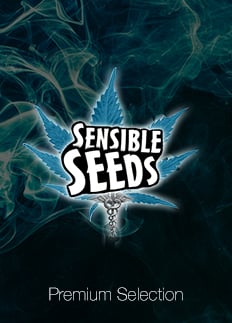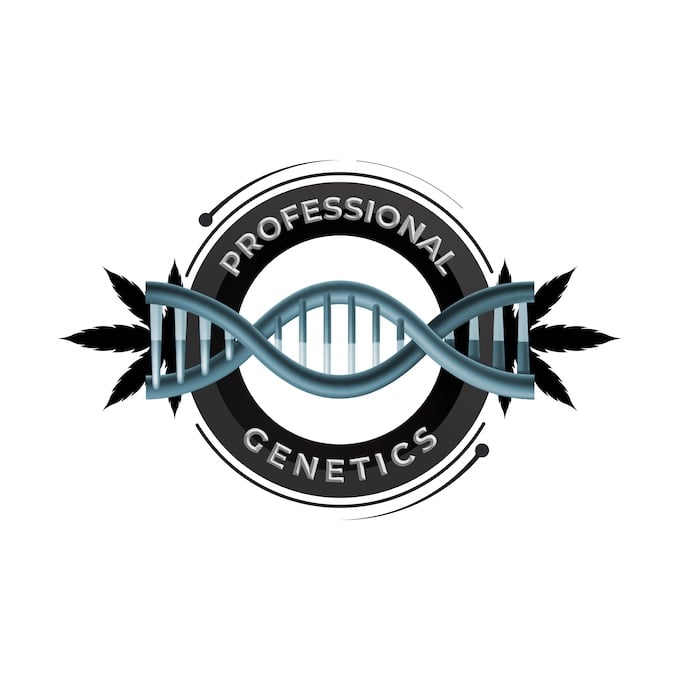Return to medical conditions page
Introduction
Medical marijuana has been shown to ease the pain and symptoms of those who suffer with leukaemia. Here at Sensible Seeds we are in the process of analysing and presenting research into the cannabis strains and treatments that will offer the most benefits to sufferers of leukaemia. Sensible Seeds is committed to bringing beneficial cannabis strains and related medical marijuana information to you, and all medical marijuana patients. We continue to update our website as new discoveries come to light. We have sourced information from a variety of well-established medical marijuana websites and a summary of this information can be found below.
-
 Click here to see our strains that could help Leukaemia
Click here to see our strains that could help Leukaemia
The Sensible Seeds team are constantly updating the list of marijuana seeds available for sufferers of Leukaemia and other medical marijuana related conditions. Keep checking back at the Sensible Seeds websites for updates on medical marijuana for inflammatory bowel disease, ulcerative colitis, crohn's disease If you have found a cannabis strain which you found beneficial please let us know and we will list it here.
What is Leukaemia?
Leukaemia is cancer of the white blood cells. Where the condition is acute, it will progress rapidly and aggressively and require immediate medical attention. Acute leukaemia is classified according to the type of white blood cells that are affected by cancer, either lymphocytes (that usually fight viral infections) or myeloid cells (which fight bacterial infections, defend the body against parasites and prevent the spread of tissue damage). Other types of leukaemia include acute lymphoblastic leukaemia, chronic myeloid leukaemia, and chronic lymphocytic leukaemia. Leukaemia does not refer to a single disease, but rather covers a broad spectrum of diseases and is classified as either chronic or acute, depending on the rate of progression, and by the type of white blood cells that are affected. Acute lymphocytic (or lymphoblastic) leukaemia is the most common leukaemia that occurs in children.
Acute leukaemia is an uncommon type of cancer, with 7,600 people diagnosed in the UK each year. In 2000, approximately 256,000 children and adults around the world developed some form of leukaemia, and 209,000 died from it. Acute myeloid leukaemia is more common in people aged 65 or over and it is more common in males than females.
The causes of acute myeloid leukaemia are not understood, but certain risk factors are recognised, including, exposure to high levels of radiation or exposure to benzene, a chemical used in manufacturing that is also found in cigarettes.
What causes acute leukaemia?
The body’s blood cells are produced by bone marrow – the spongy material found inside the bones – including stem cells which are vitally important to body function. Stem cells have the ability to create specialised blood cells that carry out other important functions, namely:
· red blood cells – which carry oxygen around the body
· white blood cells – which help fight infection
· platelets – which help stop bleeding
The bone marrow allows the stem cells to mature into "adult" blood cells. Unfortunately, in cases of acute leukaemia, the affected bone marrow releases immature white blood cells instead. These are known as blast cells. The blast cells rapidly disrupt the normal balance of cells in the blood meaning the body doesn’t have enough red blood cells or platelet cells. This can cause anaemia and lead to excessive tiredness and bleeding. The white blood cells are not properly formed so they are much less able to fight bacteria and viruses, and infections are therefore more likely and more numerous.
The warning signs of acute leukaemia
Symptoms begin slowly but quickly become more severe as the number of immature white blood cells in your blood increases. Symptoms include:
· Tiredness
· Repeated infections in a quick time frame
· Pale skin
· Breathlessness
· Unusual, unexpected bleeding
Conventional treatment for leukaemia
Chemotherapy is usually used to treat most forms of leukaemia. A bone marrow transplant may also be needed. However, treatment becomes less effective when leukaemia spreads - usually to the central nervous system, skin and gums, and sometimes in the form of tumours. Where a cure is not possible, there is a risk that the lack of healthy blood cells can make the person extremely vulnerable to life-threatening infections (due to the lack of white blood cells) or uncontrolled and serious bleeding (due to the lack of platelets). Treatment outcomes do tend to vary. In many instances, leukaemia will eventually return after a period of remission.
Medical Marijuana for Leukaemia
Many cancer patients have turned to medical marijuana for relief - particularly from cancer-related pain and the nausea that is associated with chemotherapy treatments. However, a countless number of studies have identified that medical marijuana is also becoming known for its ability to fight both leukaemia and other forms of cancer including cancers of the lung, breast, prostate, pancreas and many more.
Medical marijuana's ability to soothe cancer has been attributed to the endocannabinoid system - the body's natural cannabinoid system. Cannabinoid receptors have been found in most parts of the body, including within white blood cells. Researchers have therefore examined the role of medical marijuana in treating leukaemia, and have uncovered some promising findings.
In 2002, an early study by a team of researchers in Virginia documented medical marijuana's potential to fight leukaemia. The research showed that THC - along with other cannabinoids - was effective in inducing apoptosis (programmed cell death) in a variety of human leukaemia and lymphoma cell lines. THC also inhibited the growth of lymphoma tumours in mice, and 25% of those mice were reportedly cured.
Besides animal studies, other research has confirmed THC's ability to fight cancer in human leukaemia cells. A study published in 2005 by researchers in the U.K. showed that THC could start to take effect as quickly as six hours after administered and it could induce cell death in all three troublesome leukaemia cell lines that were studied.
In addition to THC, researchers have also investigated the effects of CBD - a non-psychoactive compound that is also found in marijuana. A study published in 2006 found that CBD was able to kill cancer cells in both humans and animals. The researchers found that CBD could provide a more selective method of treatment, since its actions seemed to be primarily facilitated by CB2 receptors, which are mostly found in the immune system.
Finally, certain studies have suggested that there is a synergetic cancer-fighting effect when THC and chemotherapy agents are administered together. A 2008 study found that THC could sensitize leukaemia cells to chemotherapy agents, meaning there were higher rates of cell death than either form of treatment could achieve on its own.
The research therefore suggests that medical marijuana can provide relief from cancer-related pain and nausea, but may also be able to fight the disease itself which will be of particular interest to those who wish to use medical marijuana for leukaemia and become MMJ patients. However it is important that all potential medical marijuana patients remember that thus far while the evidence is promising, no clinical trials have been conducted so far. As a result, it is impossible to say at this time, whether marijuana can kill leukaemia cells in humans.
However, cancer is indeed a devastating disease and many potential MMJ patients are happy to experiment with alternative forms of treatment, regardless of professional opinion. Medical marijuana use should therefore be carefully considered.
Medical marijuana for leukaemia – Sensible Seeds
The Sensible Seeds team are constantly updating the list of marijuana seeds available for leukaemia sufferers and other medical marijuana patients. Keep checking back at the Sensible Seeds websites for updates on medical marijuana for leukaemia and other cancers or contact us for further advice and information.
Return to medical conditions page
Sensible Seeds source all their medical marijuana information from related MMJ sites on the web. This information comes from reliable sources though we cannot be 100% certain of its accuracy. Medical Marijuana strains listed for helping certain medical conditions are again sourced from other medical marijuana web sites and are not officially approved by any government organisation. Recommended strains usually come from individuals that discovered that a particular strain helped them for a particular condition though this may vary from person to person. Our Medical information serves only as a guideline and customers are advised to make their own independent research. Sensible Seeds are not qualified medical practitioners and source any medical info from information already present on the internet. We cannot accept any liability for any issue arising for information provided on our website.
The Service provides general information about medical conditions and treatments and is not intended to be a substitute for professional medical advice, diagnosis, or treatment.
You must not rely on the information provided by this Service as an alternative to medical advice from your doctor or other professional healthcare provider. If you have any specific questions about any medical matter you should consult your doctor or other professional healthcare provider. If you think you may be suffering from any medical condition you should seek immediate medical attention. You should never delay seeking medical advice, disregard medical advice, or discontinue medical treatment because of information provided by this Service.
Reliance on any information provided by Sensible Seeds employees, other parties privy to the Service, or other users of the Service is solely at your own risk.









